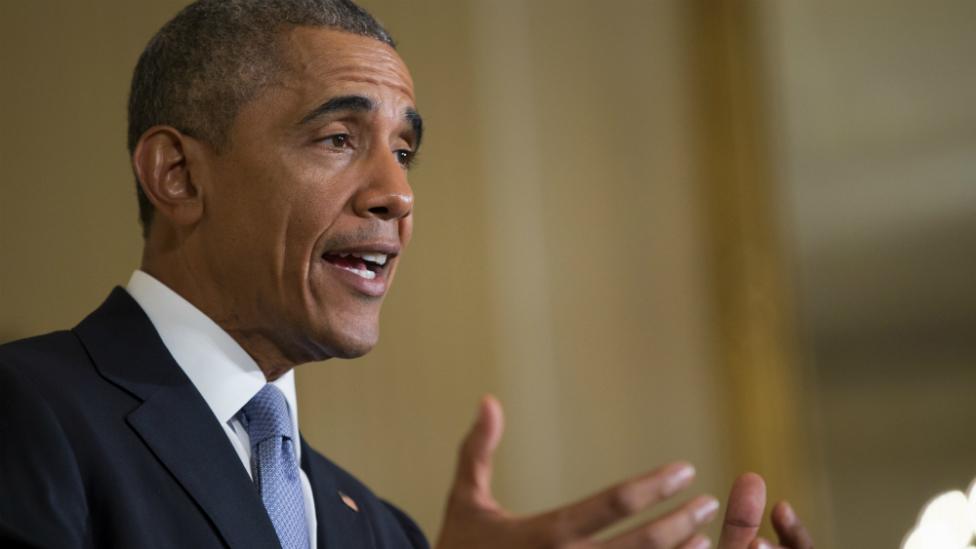Bill Clinton regrets 'three strikes' bill
- Published
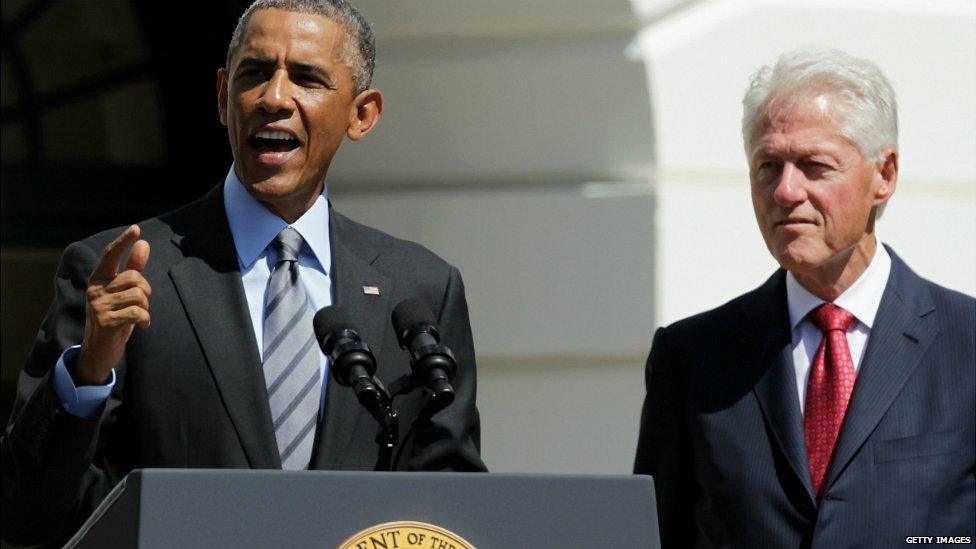
Mr Clinton, right, says he helped create the prison problem President Obama is trying to solve
Former US President Bill Clinton has admitted his "three strikes" crime bill introduced in the 1990s contributed to the problem of overpopulated prisons.
Speaking to a civil rights group, he said: "I signed a bill that made the problem worse and I want to admit it."
It put 100,000 more police officers on the streets but locked up "minor actors for way too long", Mr Clinton said.
President Barack Obama launched a renewed effort to reform the criminal justice system this week.
He visited a federal prison in Oklahoma on Thursday, becoming the first sitting president to do so.
Speaking at the El Reno Federal Correctional Institution, Mr Obama said the criminal justice system needs to distinguish between young people who make mistakes and those who are truly dangerous.
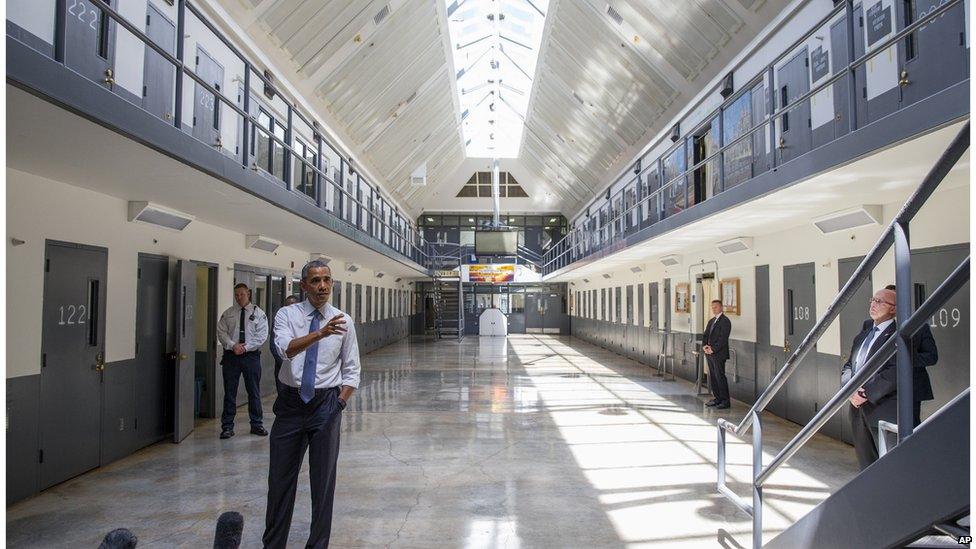
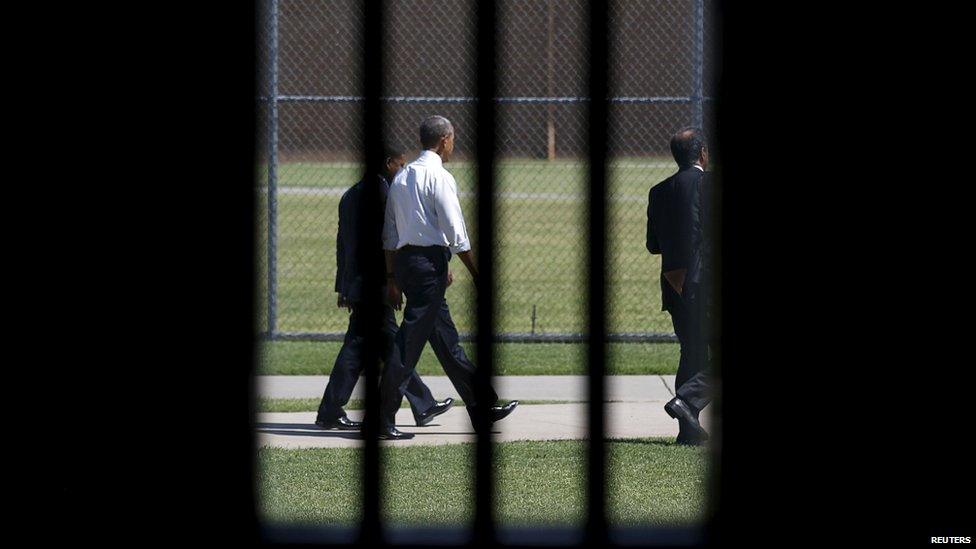
Some of the young prisoners he met at the prison had made mistakes not that different from those he made in his youth, Mr Obama said.
On Wednesday, Mr Clinton told the National Association for the Advancement of Coloured People (NAACP) convention in Philadelphia that he had faced a "roaring decade of rising crime".
He signed a bill into action in 1994 that included a "three strikes" rule that meant anyone convicted of a serious violent crime who had two or more prior convictions, including drug crimes, was given a life sentence.
He said the "good news" was that the tough raft of measures in the bill had helped secure "the biggest drop in crime history".
"The bad news is we had a lot of people who were essentially locked up who were minor actors for way too long," he added.
Why are so many Americans behind bars?
Earlier this week, President Obama commuted the prison sentences of 46 drug offenders saying their sentences "didn't fit their crimes".
"Mass incarceration makes our entire country worse off, and we need to do something about it," Mr Obama told the NAACP on Tuesday.
He has urged Congress to pass a sentencing reform bill by the year's end.
Mr Clinton's comments come as his wife, former Secretary of State Hillary Clinton, makes criminal justice reform part of her presidential campaign agenda.
In April, Mrs Clinton echoed President Obama's comments, saying she would push for an end to the "era of mass incarceration".
The last significant changes to the US criminal justice system came in 2013 when US Attorney General Eric Holder dropped mandatory minimum sentences for non-violent drug offenders.
More than two million people are in jail in the US. A tenth of them are held in federal prisons.
US prisons in numbers
-
208,000 people in federal prisons
-
48% of them for drug offences
-
37% of them are black
-
34% of them are Hispanic
-
$80bn the cost of incarceration in the US in 2010
- Published14 July 2015
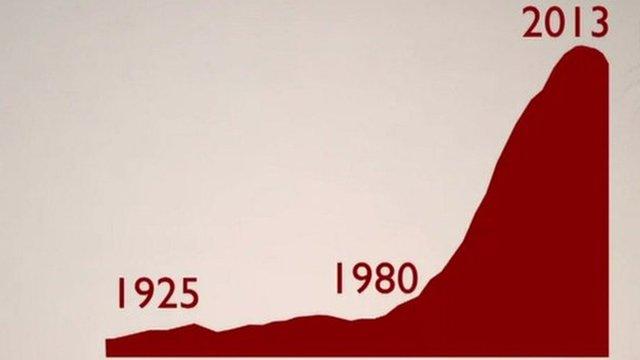
- Published14 July 2015
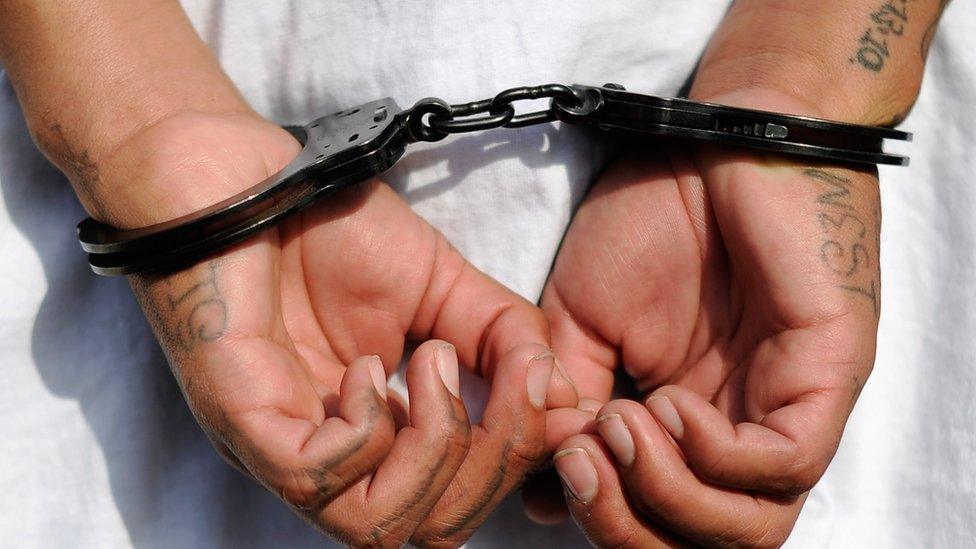
- Published13 July 2015
